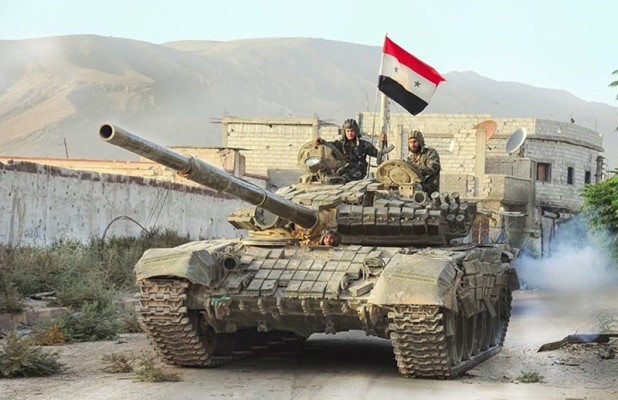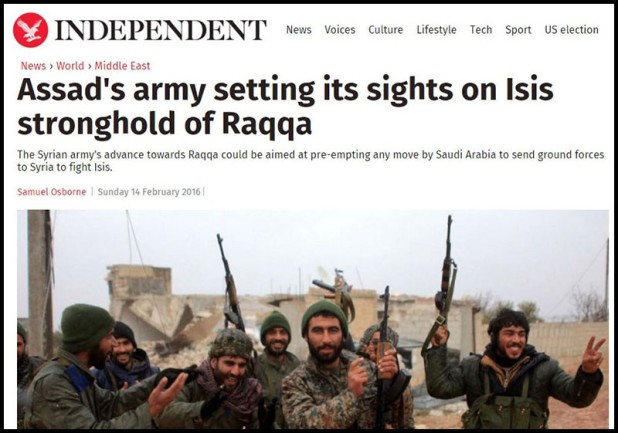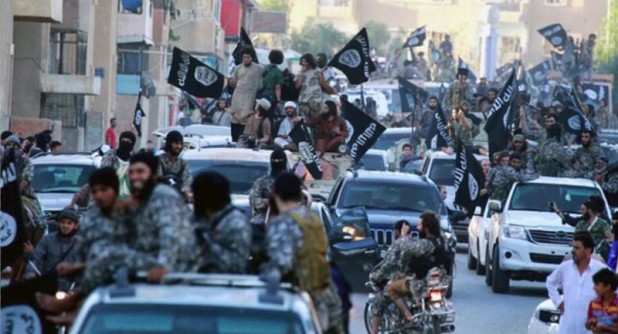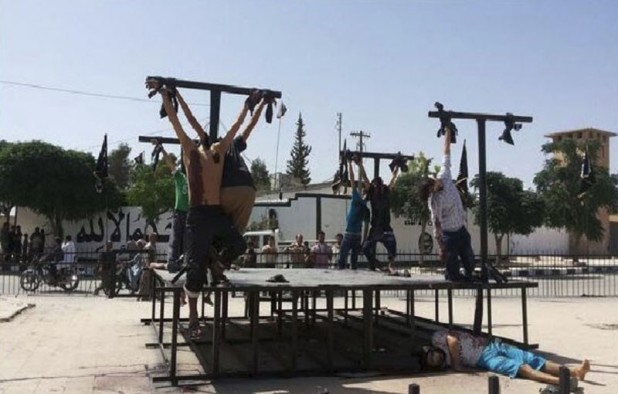The New Observer
February 16, 2016
 A major Washington DC think tank has become the first establishment institution to publicly admit that Turkey is the main source of supplies to the ISIS stronghold of Aleppo in Syria.
A major Washington DC think tank has become the first establishment institution to publicly admit that Turkey is the main source of supplies to the ISIS stronghold of Aleppo in Syria.
In a paper produced by the Atlantic Council’s Rafik Hariri Center for the Middle East, the think tank says that the Syrian army has now “severed the main insurgent supply line from Turkey to long-contested Aleppo, Syria’s second city.”
The Atlantic Council is an international affairs forum for international political, business, and intellectual leaders, founded in 1961.
It has, since its inception, been a nonpartisan institution, with members from both Republican and Democratic parties, many of whom had served in senior administration posts through the years. It is, therefore, thoroughly establishment in its outlook, which makes the admission of the ISIS-Turkey link all the more remarkable.
According to the paper, the cutting of the supply line to Aleppo by Syrian ground forces is a “serious blow to the rebellion,” and is the culmination “of several tactical regime victories against the opposition in recent weeks, largely due to Russian air support.”
The paper goes on to say that following these advances, the Syrian government is now “well-placed to divide, isolate, and advance on the armed opposition in several key geographies.”
A Syrian army tank advances through Raqqa province.
Aleppo is, as is well-known even amongst the controlled media, one of the most important ISIS strongholds in Raqqa province. The Syrian army’s advance towards Raqqa has re-established the Syrian government’s presence in the province for the first time since 2014, backed on the ground by forces from Iran and the Lebanese Hezbollah.
The Atlantic Council’s study paper said that the Syrian army had “secured access to several towns north of Aleppo city, most prominently Nubl and Zahraa, succeeding in a few days in what it had failed to do for over three years.”
The paper then went on to reiterate that by “separating the northern Aleppo countryside from Aleppo city, the regime has effectively cut access by the city’s insurgents to Bab al-Salama, their key supply line from Turkey.
“Rebel forces in northwestern Syria receive supplies from Turkey through two border crossings: Bab al-Salama in Aleppo province and Bab al-Hawa in Idlib province. If the regime takes Aleppo city, it could then target supply lines between Idlib- and Hama-based insurgents and Turkey.”
It is clear, as the Atlantic Council said, that the Syrian forces “could not have done this without support from Russia, which conducted more than 270 air raids on the areas north of Aleppo city on Monday and Tuesday of this week alone.”
By taking these towns, the Syrian government has isolated Aleppo city from its northern countryside and cut all remaining supply lines to the city.
ISIS parades through Aleppo after the city’s capture from the government.
Although the Atlantic Council paper is—of course—hostile to the Syrian government (as are all Jewish lobby-controlled establishment organizations), it does go on to admit that the Syrian advance on Aleppo will, from Bashar Al-Assad’s point of view, “demonstrate to the world that it must choose between Assad and ISIS, and that ISIS and the various insurgent groups are one and the same enemy.”
Christians, crucified by ISIS in Aleppo. The “moderate” US-supplied rebels joined ISIS.
Attempts to halt the war through peace talks are now only being supported by the US government after the Russian intervention has undone the “advances” achieved by the Obama administration-armed “rebels.”
It is no coincidence that as the Syrian government finally seems to be getting the upper hand over the “rebels”—that the demand for “cease-fires” from the US and UK governments become all the more shrill.
This is in marked contrast to the encouragement, arms, and logistical support given to the “rebels” by those same governments when they thought there was a possibility of Assad being violently overthrown.




